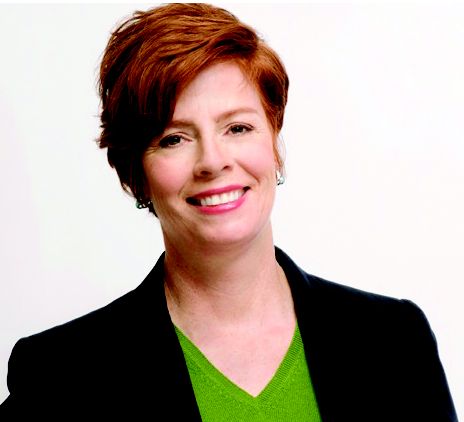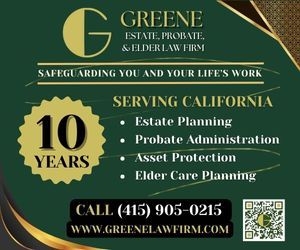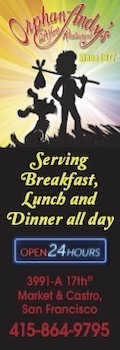Do Endorsements Matter? Election
“Endorsed by the San Francisco Democratic Party,” or “Endorsed by the Alice B. Toklas LGBT Democratic Club.” What does such a statement mean, and does it carry any weight? Why do candidates and ballot proposition advocates care so much about endorsements?
Since registered Democrats outnumber Republicans by a ratio of more than 6 to 1, it is safe to say Democrats run this city and heavily influence the outcomes of every election, even non-partisan races. With over 30 chartered Democratic Clubs, the County of San Francisco has perhaps the highest number of clubs per capita of any other county in the state, if not the country.
So what does a Democratic Club do, exactly? Well, it is generally a community of Democrats with something in common, who wish to have their policy priorities recognized and supported by the party and elected officials. It may be an LGBT Democratic Club, or one that represents African Americans, or a neighborhood club such as the Bernal Heights Club, or a special interest like the Home Sharer’s Democratic Club. The point is that the club attempts to represent the interests of their stated constituency, and uses those interests as a litmus test for endorsing candidates or doing grassroots activism for specific causes.
The power of endorsement–along with the money to publish “slate cards” guiding voters how to vote–and a field organization to distribute literature and to do the visibility and canvassing for their endorsed candidates are the primary ways Democratic Clubs influence elections in the city. Not all clubs are created equal, though.
Some are able to raise funds to buy ads and to distribute multiple mail pieces for their endorsed candidates. The Alice B. Toklas LGBT Democratic Club, for example, raises money through its annual Pride Breakfast. Other clubs may endorse, but have less means to get the word out to help their candidates. For these reasons, Alice and the San Francisco Democratic Party (represented by the DCCC), two of the best funded and most recognizable endorsement bodies, are arguably the most coveted endorsements in the city. That is why this year’s DCCC race is so competitive: 60 candidates, including 21 current or former elected officials, are running for 24 seats. The moderates and progressives each seek a majority to control the power of the “Endorsed by the San Francisco Democratic Party” seal of approval.
In addition to the DCCC, the clubs are also crucial, and their names don’t always give away their political leaning or how they will endorse.
Even though Alice and the Harvey Milk Democratic Club are listed as LGBT Democratic Clubs, their own political ideology informs their endorsements as much as LGBT community issues do. In different elections, each club has chosen to endorse a straight ally that more closely aligns with their club’s values, over an LGBT candidate. For example, this year the Milk Club is endorsing Jane Kim over our own D8 Supervisor Scott Wiener. In 2014, Alice endorsed straight ally David Chiu over David Campos. These clubs represent their constituency, but more often than not, they represent the values and wishes of their leadership and membership.
Clubs do not stay stagnant, either. Some clubs swing between voting for more moderate to more progressive candidates, and vice versa, depending on who their officers or new members are in any year. Clubs can sometime get taken over when supporters for a particular candidate “pack” a club’s membership and swing it. For example, the San Francisco Women’s Political Caucus was fairly moderate, then swung very progressive for the 2014 Assembly race when David Campos supporters joined the club in large numbers.
A club’s susceptibility to getting packed depends on the club’s bylaws, and their criteria for becoming a member and voting on endorsements. For some, you can join the day of the election and vote on their endorsements. Others have a waiting time, or a requirement to attend a certain number of meetings or events before becoming eligible. Others have residency requirements (must be a registered democrat in a geographic area), like the Noe Valley Democratic Club. In many ways it mirrors our country’s crazy quilt of primaries and caucuses with varying rules for Presidential candidates.
All this is to say a candidate seeking Democratic endorsements needs to navigate over thirty clubs with varying rules. In a crowded field, like this year’s DCCC race, it is important to get name visibility and secure as many endorsements as possible, so your name can be placed on as many slate cards as possible. Ideally a candidate wants a long list of diverse support—labor unions; LGBT, African American, Latino, and Asian American communities; Young and College Democrats; from multiple neighborhoods across the city. You also want the endorsement of popular and senior elected officials to bring cache to your candidacy.
When you see a candidate has been endorsed by a Democratic club, you should know they have typically gone through a fairly rigorous process of questionnaires, interviews and club meetings to secure that endorsement. In San Francisco, every endorsement and every vote count. I am fortunate in my own DCCC race to be endorsed by Democratic Leader Pelosi, CA Democratic Party Chair John Burton, Board of Equalization Chair Fiona Ma, Supervisors Scott Wiener, London Breed and many Democratic Clubs.
So pay attention when you start receiving mail over the next six weeks as we prepare for the June 7 primary. It will help you to understand who is supporting that candidate, and how broad a base of support they carry.
Zoe Dunning is a retired Navy Commander and was a lead activist in the repeal of Don’t Ask, Don’t Tell. She served as Co-Chair of the Board of Directors for the Alice B. Toklas LGBT Democratic Club. She currently serves as the First Vice Chair of the San Francisco Democratic Party and as a San Francisco Library Commissioner.









Recent Comments